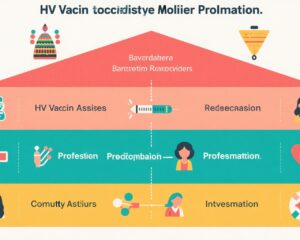Introduction
The management of early breast cancer in postmenopausal women has evolved considerably over the last few decades. One key area of development has been the use of endocrine therapy and specifically the role of aromatase inhibitors. This article discusses findings from a patient-level meta-analysis that assesses the impact of extending the duration of endocrine treatment for early breast cancer, specifically focusing on postmenopausal women who have already been treated with at least five years of endocrine therapy.
Breast cancer is one of the most common cancers among women worldwide. Due to its heterogeneity, treatment strategies vary based on hormonal receptor status, tumor grade, and stage at diagnosis. For estrogen receptor-positive breast cancer, endocrine therapy is a critical component of treatment. Aromatase inhibitors (AIs) such as anastrozole, letrozole, and exemestane are commonly prescribed as they have been shown to significantly reduce the risk of recurrence when used in the adjuvant setting.
Meta-Analysis Summary
The study conducted by the Early Breast Cancer Trialists’ Collaborative Group (EBCTCG) comprised data from twelve randomized trials involving a total of 22,031 postmenopausal women. All participants had received at least five years of endocrine therapy prior to enrollment. The main objective was to determine whether extending aromatase inhibitor treatment beyond the initial five years would lead to improved outcomes.
Figure 1 Recurrence in trials of 2–3 further years of AIT versus no further AIT or of 5 further years of AIT versus no further AIT in women who had already completed at least 5 years of previous endocrine therapy
01013-X/asset/84bfc815-818f-4806-b397-4a697377af4a/main.assets/gr2.jpg)
01013-X/asset/239d4227-b5d1-405d-b0dc-dfd1e880383c/main.assets/gr3.jpg)
The results indicated that extending the duration of treatment showed a statistically significant reduction in the risk of breast cancer recurrence. Furthermore, results suggested improvements in overall survival, endorsing the hypothesis that longer endocrine treatment could confer additional protective benefits against cancer recurrence.
Clinical Implications
The findings highlight the importance of personalized treatment strategies in managing early breast cancer. Oncologists may consider the patient’s individual risk profile, including tumor characteristics and patient preferences, when deciding to extend therapy. As a consequence, the healthcare providers might need to engage in discussions with patients about the potential benefits and risks associated with extended aromatase inhibitor therapy.
Potential Risks and Considerations
While extending treatment can offer additional benefits, it is essential to consider the potential adverse effects associated with prolonged use of aromatase inhibitors. Common side effects may include joint pain, fatigue, and bone density loss, which can impact patient quality of life. Regular monitoring for these side effects as well as bone health is necessary to ensure that the benefits of extended therapy outweigh the potential harms.
Future Directions
Further research is essential to optimize treatment protocols in breast cancer. Future studies may explore the possibility of combining aromatase inhibitors with other therapeutic strategies or alternating treatments to enhance efficacy and minimize adverse effects. The integration of genetic and molecular profiling could provide additional insights into predicting which patients would benefit most from extended endocrine therapy.
Conclusion
In summary, extending the duration of endocrine therapy with aromatase inhibitors in postmenopausal women with early breast cancer is supported by the results of a comprehensive meta-analysis. Given the significant reduction in recurrence risk associated with prolonged treatment, this approach may represent a useful strategy for improving long-term outcomes for patients. As this field continues to evolve, it remains imperative for clinicians to balance efficacy with quality of life considerations when making treatment decisions.
Reference
Early Breast Cancer Trialists’ Collaborative Group (EBCTCG). Electronic address: bc*********@********ac.uk; Early Breast Cancer Trialists’ Collaborative Group (EBCTCG). Extending the duration of endocrine treatment for early breast cancer: patient-level meta-analysis of 12 randomised trials of aromatase inhibitors in 22 031 postmenopausal women already treated with at least 5 years of endocrine therapy. Lancet. 2025 Aug 9;406(10503):603-614. doi: 10.1016/S0140-6736(25)01013-X IF: 88.5 Q1 . Erratum in: Lancet. 2025 Aug 11:S0140-6736(25)01638-1. doi: 10.1016/S0140-6736(25)01638-1 IF: 88.5 Q1 . PMID: 40783288 IF: 88.5 Q1 .

01013-X/asset/7fe7cff9-be34-46bc-ac1c-815af3583223/main.assets/gr1.jpg)

